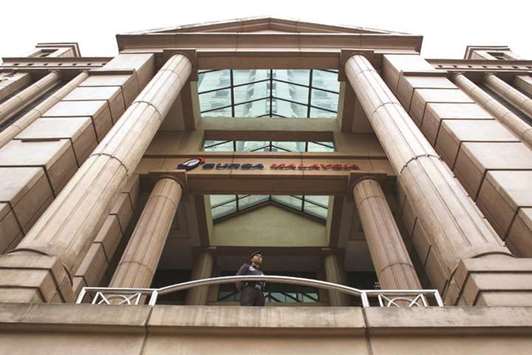Budget discipline and better economic fundamentals are setting Malaysian equities apart.
With a 6.6% rebound, the FTSE Bursa Malaysia KLCI Index is heading for its best quarter since the end of 2011, while the MSCI Asia Pacific Index has lost 2.3%. That pushed the valuation of the Malaysian gauge to its highest level since at least 2009 relative to the regional benchmark.
Optimism is returning after a shock election result in May triggered a plunge of as much as 10% in Malaysia’s equity index as foreigners fled the market. While the outflows haven’t completely stopped, the pace has slowed, with August posting the smallest withdrawals in four months.
Morgan Stanley upgraded the nation’s shares last week, noting the recent outperformance for a market that tends to be less volatile.
“Investors are starting to come back into the equities market after the post-election selloff because the new government is seen to be more pragmatic towards the country’s fundamentals in prioritising financial stability over aggressive growth,” Bharat Joshi, a fund manager at Aberdeen Standard Investments, said by phone. “This has given investors renewed confidence on the country.”
In a bid to improve fiscal discipline, the new government scrapped some infrastructure projects when it took over and put on hold a railway link between Malaysia and Singapore.
It’s also implemented a new sales and services tax, replacing a consumption levy it eliminated in June and boosting hopes that the step will help increase consumers’ purchasing power.
In a diverging view from Joshi, Danny Wong, the chief executive officer at Areca Capital Sdn., sees more uncertainty from the new government’s policies, in addition to external risks, and has raised his fund’s cash holdings. He’s waiting for “potential opportunity” in the final quarter of this year.
“I am wary of liquidity tightening and corporate-earnings growth of certain sectors slowing down significantly,” Wong wrote in an e-mail. “External uncertainties like the trade-related issue and EM currencies’ weakness cloud over the fundamentals.”
Aberdeen’s Joshi favours some banking shares as interest rates rise and consumers stocks on the expectation that private spending will keep growing along with the economy.
“The market has always been a defensive market, with major institutional domestic investors like the country’s sovereign wealth fund and pension funds supporting the local market,” he said.

Bursa Malaysia headquarters in Kuala Lumpur. With a 6.6% rebound, the FTSE Bursa Malaysia KLCI Index is heading for its best quarter since the end of 2011, while the MSCI Asia Pacific Index has lost 2.3%.
